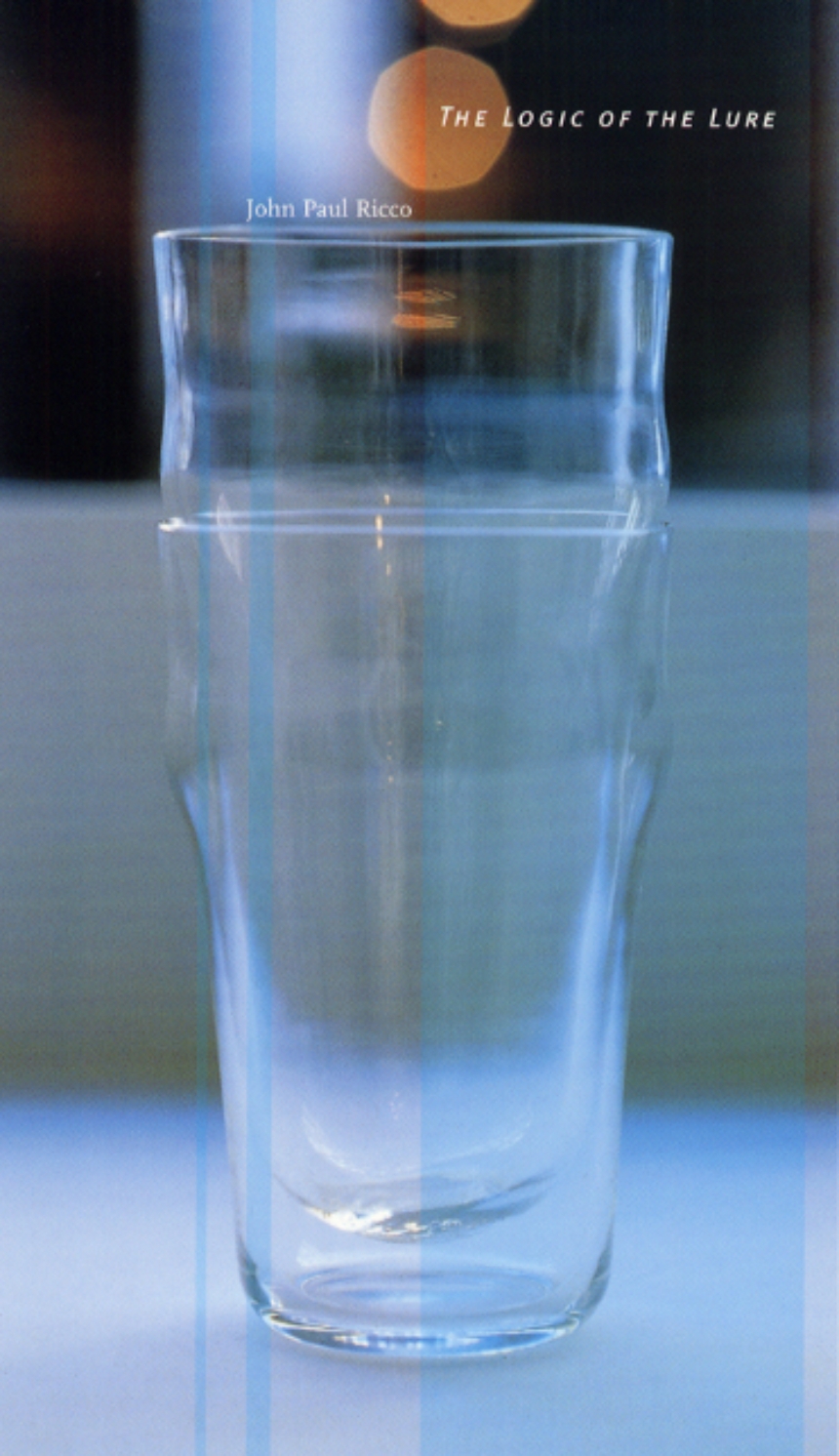The Logic of the Lure
The attraction of a wink, a nod, a discarded snapshot—such feelings permeate our lives, yet we usually dismiss them as insubstantial or meaningless. With The Logic of the Lure, John Paul Ricco argues that it is precisely such fleeting, erotic, and even perverse experiences that will help us create a truly queer notion of ethics and aesthetics, one that recasts sociality and sexuality, place and finitude in ways suggested by the anonymity and itinerant lures of cruising. Shifting our attention from artworks to the work that art does, from subjectivity to becoming, and from static space to taking place, Ricco considers a variety of issues, including the work of Doug Ischar, Tom Burr, and Derek Jarman and the minor architecture of sex clubs, public restrooms, and alleyways.
195 pages | 36 halftones | 5-1/4 x 9 | © 2002
Art: Art Criticism
Literature and Literary Criticism: General Criticism and Critical Theory
Philosophy: Aesthetics
